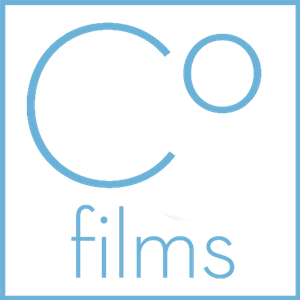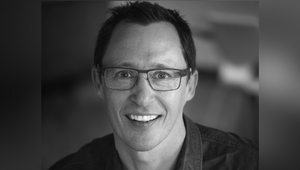
The Directors: Paul Fox

Paul Fox is an accomplished filmmaker with an impressive array of award-winning feature films, television episodes, and short films to his credit. A graduate of New York’s School of Visual Arts, Paul’s thesis film, Last Round Up, won numerous awards and was invited to the Sundance Film Festival. Paul’s first feature
The Dark Hours, is a taut psychological thriller that received numerous awards at festivals around the world. His second film, Everything’s Gone Green, is a wry coming-of-age comedy written by acclaimed author Douglas Coupland (Generation X), which premiered at the Toronto Film Festival and was released to excellent notices in Canada and the U.S.
Paul helmed 18 episodes of Golden Globe and Emmy winning Schitt's Creek, the popular and critically lauded comedy series starring Eugene Levy, Catherine O'Hara, and Chris Elliott.
Paul won a Canadian Screen Award for Best Direction in a Comedy Program for his Schitt’s Creek episode, “The Cabin”, and also received Director’s Guild nominations for his direction in multiple seasons.
Paul lives in Toronto and Los Angeles, and is currently directing the new Amazon series The Lake, as well and Apple + Fraggle Rock and Netflix’s, Workin’ Moms.
Name: Paul Fox
Location: Los Angeles/Toronto
Repped by/in: CoMPANY Films(Commercials - US); Verve Talent & Literary Agency (Film & TV - US); The Characters Talent Agency (Film & TV – Canada)
Awards: Best Direction in a Comedy Program – Schitt’s Creek, ‘The Cabin’, Canadian Screen Awards
Best Feature Award – ‘Everything’s Gone Green’, Vancouver Int’l Film Festival
Best Feature - ‘The Dark Hours’, New York City Horror Film Festival
Best Feature – ‘The Dark Hours’, Dead by Dawn Film Festival (Scotland)
Best Film - ‘The Dark Hours’, Austin Fantastic Fest
Best of Puchon - ‘The Dark Hours’, Puchon Int’l Film Festival (Korea)
Jury Award – ‘The Dark Hours’, Sitges-Catelonian Int’l Film Festival (Spain)
Best Horror Feature & Best Director – ‘The Dark Hours’, Phoenix Int’l Horror & Sci-Fi Festival
LBB> What are some upcoming projects that you're excited about? Tell us a bit about them!
Paul> After years working in the feature film and episodic television realms (most recently on series such as Schitt’s Creek, Workin’ Moms, Anne with an E and Amazon Prime’s The Lake), I recently directed my first commercials, a four spot campaign for OnStar’s new Guardian smartphone app. Each spot highlights a particular use of the app, and I was able to bring a comedic touch to the potentially serious issue of getting lost or breaking down on the road. I really enjoyed the process, so I’m hoping more commercials come down the line.
I also just finished directing on season 2 of the Jim Henson Company’s reboot of their legacy series, Fraggle Rock, for Apple+, which I shot the pilot for last year. It’s always fun to switch things up as a director, and stepping into the Henson world, and working with those amazing puppeteers, is a real blast. I also get to do things I rarely get asked to do with live actors, such as plan and stage big musical numbers, which allows me to really stretch those directorial muscles and have a lot of fun doing it.
LBB> What excites you in the advertising industry right now, as a director? Any trends or changes that open new opportunities?
Paul> I’m excited about the advertising industry in general, as it’s a whole new sandbox for me to play in. After years working in longform, I’m really looking forward to bringing my skills to this format, seeing what I can do within it, and learning some new tricks in the process.
LBB> What elements of a script sets one apart from the other and what sort of scripts get you excited to shoot them?
Paul> As you can probably tell from my credits, I really like working in a variety of different genres, be it comedy, drama, horror, musical, what have you. What sets one script apart from another and gets me excited to shoot it is a clever, unique idea that grabs my attention, a strong sense of character or true human experience at its core, and the potential to bring something visually interesting to the proceedings.
LBB> How do you approach creating a treatment for a spot?
Paul> Whether pitching a feature film, TV show or commercial spot, the treatment needs to show that you have a strong grasp of the project at hand, not only visually but also conceptually and storywise, and that you have a unique approach to presenting those elements in a way that will engage an audience and, in the case of commercial spots, spark a real interest in whatever product or service is being introduced.
I try to make the treatment feel as representative of the finished spot as possible. I enjoy writing the text and paring it down to its essence so that an idea can be put across as succinctly and efficiently as possible, then combining it with carefully chosen visual references so that my vision for the spot is clear and easily ‘seen’.
LBB> For you, what is the most important working relationship for a director to have with another person in making an ad? And why?
Paul> The most important working relationship in making an ad is definitely with the agency, because from the beginning to the end of the process that is who you are collaborating with most closely on all the creative elements of the spot. On the OnStar campaign I worked alongside the folks at Campbell Ewald out of Detroit, and we had a great time coming up with ideas and fine tuning the approach together. It was a collaborative experience in the best sense of the word.
The other important working relationship, of course, is with the director of photography, as that’s who you rely on to help get the visuals you see in your head onto the screen. For the OnStar spots I worked with Richard Henkels, and together we were able to fashion four very unique looking commercials. I really enjoyed the process of creating those with him.
LBB> What type of work are you most passionate about - is there a particular genre or subject matter or style you are most drawn to?
Paul> Comedy has definitely become my go-to of late - I love doing it and think I have a real affinity for it - but I’m also a true cinephile and my interests span all sorts of genres, from gritty thrillers to period pieces. I do have a particular passion for Westerns, so would welcome more of those. And anything with a musical element. I love the chameleon-like aspect of what I do, and I’ve been fortunate not to have become pigeon-holed in any one type of story. Mixing it up keeps things fresh.
LBB> You directed on Schitt’s Creek - tell us about that experience and what opportunities it opened up for you?
Paul> As you can imagine, working with that great cast was a fabulous experience. I came up watching SCTV, so Eugene Levy and Catherine O’Hara were comedy gods to me, and they didn’t disappoint. Add Chris Elliot, Dan Levy, Annie Murphy and the rest of that cast into the mix and you had a pretty special working environment.
Collaborating with them all to bring an idea or scene to life was a very enjoyable and rewarding experience, and we had a lot of laughs doing it. Directorially, my approach was to direct it like a single camera show, not a sit-com, and to let the story and character beats dictate the blocking and camera placement and not oversell the comedy, but instead let it emerge organically from the situations.
The success of the show – and its tsunami of Emmy wins – has certainly opened up opportunities for me, particularly in the comedy realm, and lead to my connection with CoMPANY Films in Los Angeles, which now reps me for commercial work.
LBB> You’re also working on your second season of ‘The Lake’ - what can we look forward to in season 2?
Paul> I can’t get into specifics, but now that audiences know the world and the characters of The Lake, we were better able to focus on the relationships and just bringing the funny. Julia Stiles, in particular, really gets to exercise her comedy chops this year, and had a lot of fun doing it. There are also some new cast members in season 2, most notably Lauren Holly (Dumb and Dumber, Picket Fences), who brings things to another level.
LBB> What’s the craziest problem you’ve come across in the course of a production – and how did you solve it?
Paul> What comes to mind are the constant weather issues we encountered while shooting The Lake in Northern Ontario, Canada. The show is set primarily outdoors, in cottage country, and the weather gods apparently don’t read call sheets. All we could do was remain nimble, and be prepared to change our plans at a moment’s notice if a tornado warning threatened to disrupt a sunset canoeing scene. The schedule became a season-long moving target, which certainly kept us on our feet.
LBB> How do you strike the balance between being open/collaborative with the agency and brand client while also protecting the idea?
Paul> I think those two things go hand in hand. In episodic television I always say that my goal is to provide the creator or showrunner with the very best episode of their show, and the same is true in commercials. I want the agency to come away from the experience feeling that I’ve helped them realize their concept to its greatest potential by bringing my own talent, skills and ideas to the party.
LBB> What are your thoughts on opening up the production world to a more diverse pool of talent? Are you open to mentoring and apprenticeships on set?
Paul> Opening up to a more diverse pool of talent is absolutely crucial and, frankly, the production world has been behind the curve on this for a long time. That said, I do think we’re starting to see real change, and with that comes fresh voices and perspectives, and that’s always exciting. Personally, I get invigorated being around new talent, and that exchange of ideas, so I’m always open to mentoring and on-set apprenticeships. It’s kind of a win-win situation.
LBB> Your work is now presented in so many different formats - to what extent do you keep each in mind while you're working (and, equally, to what degree is it possible to do so)?
Paul> It depends on the project. On The Lake we shot in anamorphic widescreen and expect it to be watched that way however it’s shown, so we had the freedom to compose the images and block the scenes exclusively for that aspect ratio, whereas for the OnStar spots, for instance, we had to be far more cognizant of delivering for different formats.
LBB> What’s your relationship with new technology and, if at all, how do you incorporate future-facing tech into your work (e.g. virtual production, interactive storytelling, AI/data-driven visuals etc)?
Paul> As with any technical developments, these new technologies can and will provide tremendous opportunities to expand what we’re capable of doing in production, but as with any new tool, they are ultimately in the service of creating engaging worlds and telling compelling stories, whether those stories are told in 2 hours, 30 minutes or 30 seconds, and in my work that will always be at the forefront.
LBB> Which pieces of your work do you feel show what you do best – and why?
Paul> It’s hard to determine a piece (or pieces) of work that shows what I do best, particularly because my work has been so diverse. In fact, I’d say it’s that diversity of content and styles that defines me. I’m also not sure what I’d be permitted to provide links to!













